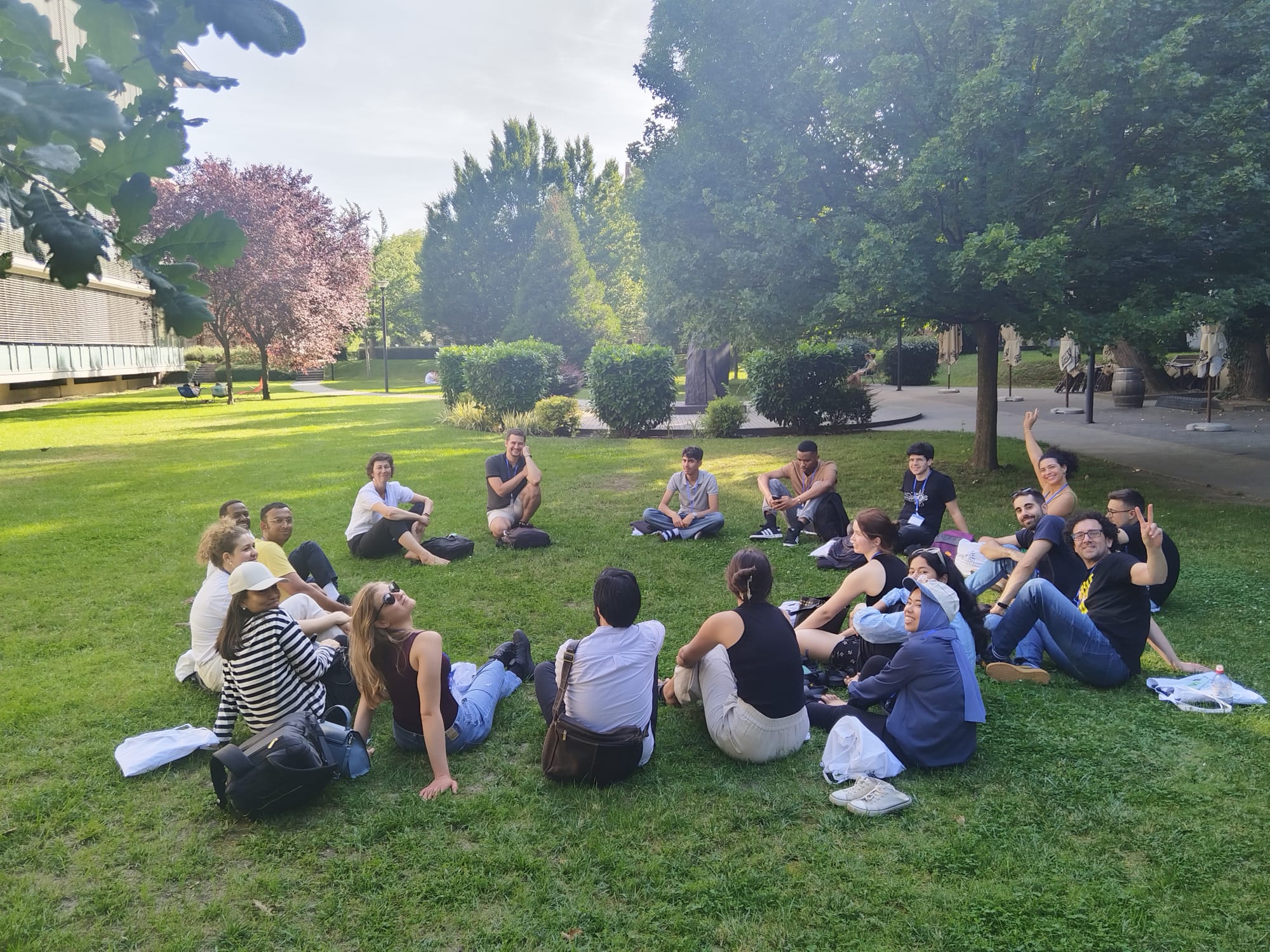
The rapid advancement of artificial intelligence presents both new opportunities and profound challenges for the humanities. In the spring of 2025, the Faculty of Humanities and Social Sciences at the University of Szeged hosted an international course titled AI and the Humanities, organized with the participation of lecturers and students from EUGLOH (European University Alliance for Global Health) partner institutions.
Multidisciplinary and International Dialogue
The course aimed to spark dialogue around the cultural, ethical, and creative dimensions of artificial intelligence. Participants engaged in critical discussions on how AI affects authorship, creativity, meaning-making, and interpretation. Key questions included: How is AI transforming art and literature? What new challenges does it pose to our understanding of human labor and the way we relate to autonomous machines?
Before the three-day in-person event in Szeged, an online opening session laid the groundwork for shared reflection. Once in Szeged, participants attended lectures and seminars, while also taking part in fieldwork experiments, collaborative workshops, and experimental art activities.

Speakers from Across Europe
The program featured renowned experts from a range of disciplines, including:
The program’s academic coordinators, Izabella Füzi and Ágnes Matuska (University of Szeged), highlighted the central role of student engagement and reflective thinking. In alignment with this, the theoretical framework for the course drew on the work of contemporary thinkers such as Lev Manovich, Meghan O’Gieblyn, Kate Crawford, and Holly Case.
Timely Topics – Creative Pedagogy – International Community
AI and the Humanities went beyond the boundaries of a traditional course – it served as a creative and experimental space for learning, reflection, and discovery. Activities ranged from an offline, smartphone-free urban field mission to playful learning sessions and immersive experimentation with generative AI. Throughout these interactions, participants were encouraged to share personal and professional experiences and explore their own relationships with AI technologies.
Students who participated in the course and submitted a reflective essay received a EUGLOH Certificate and 3 ECTS credits.
Exploring the Questions of Tomorrow – Today
The AI and the Humanities course made one thing clear: artificial intelligence is not just a matter of technology. Its cultural, philosophical, and societal implications are reshaping how we think about human experience itself. In keeping with this understanding, the international initiative at the University of Szeged served as a powerful example of how to approach one of the 21st century’s most pressing issues – critically, creatively, and collaboratively.
While AI could be used to generate a report on this special international course, participants emphasized that what truly mattered to them were the mindset-shifting conversations – the kind that continue to shape their everyday actions, with or without the use of AI.

